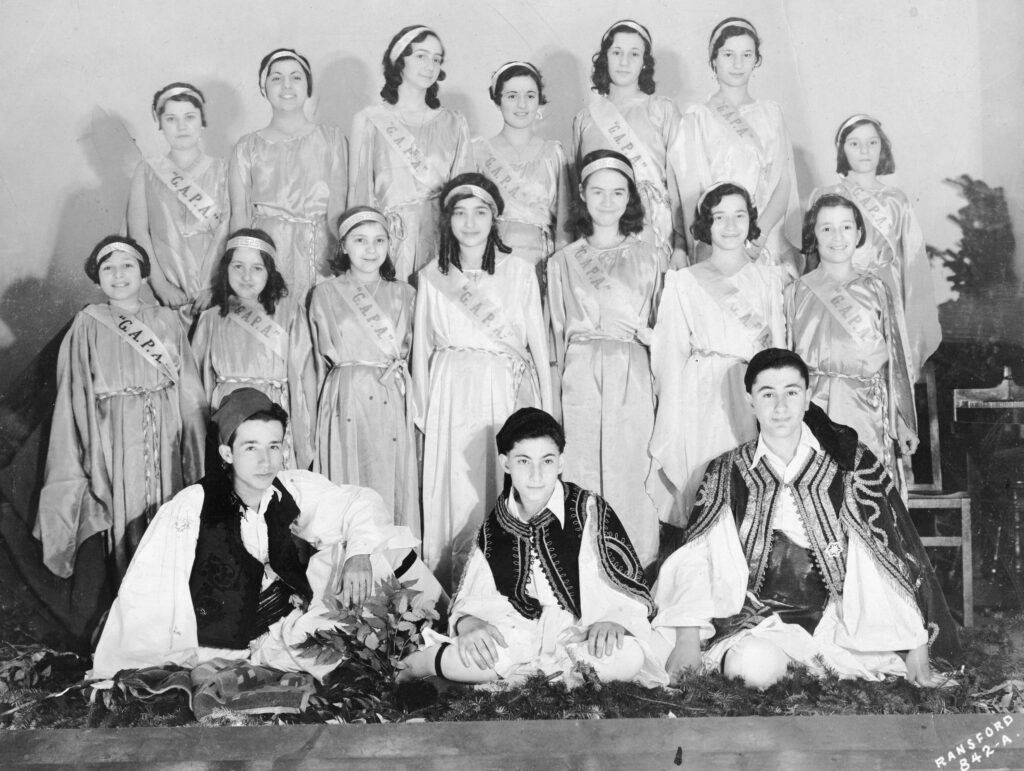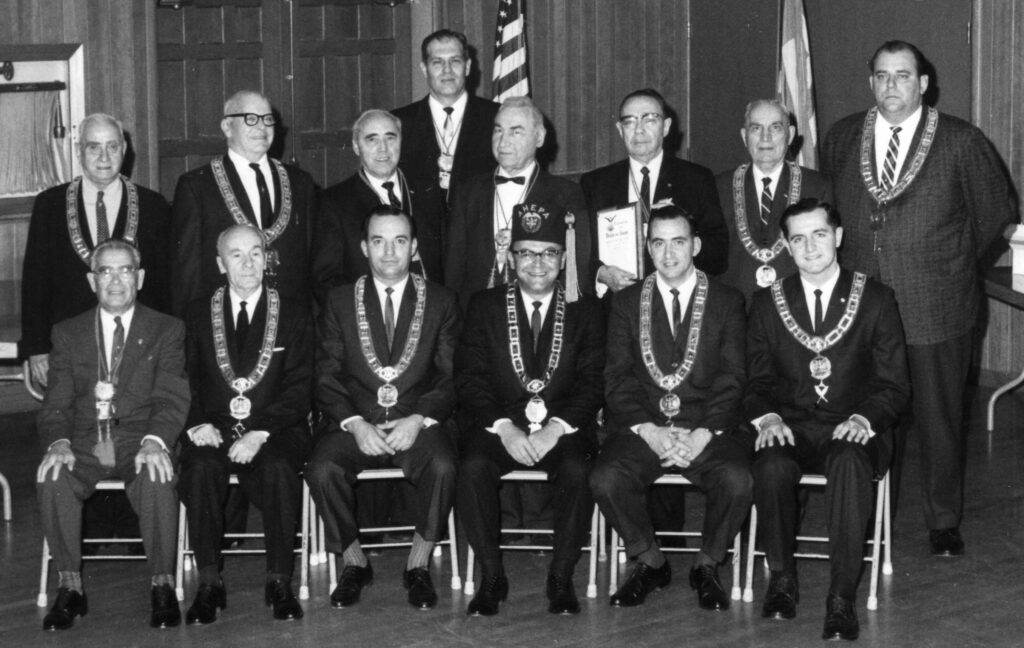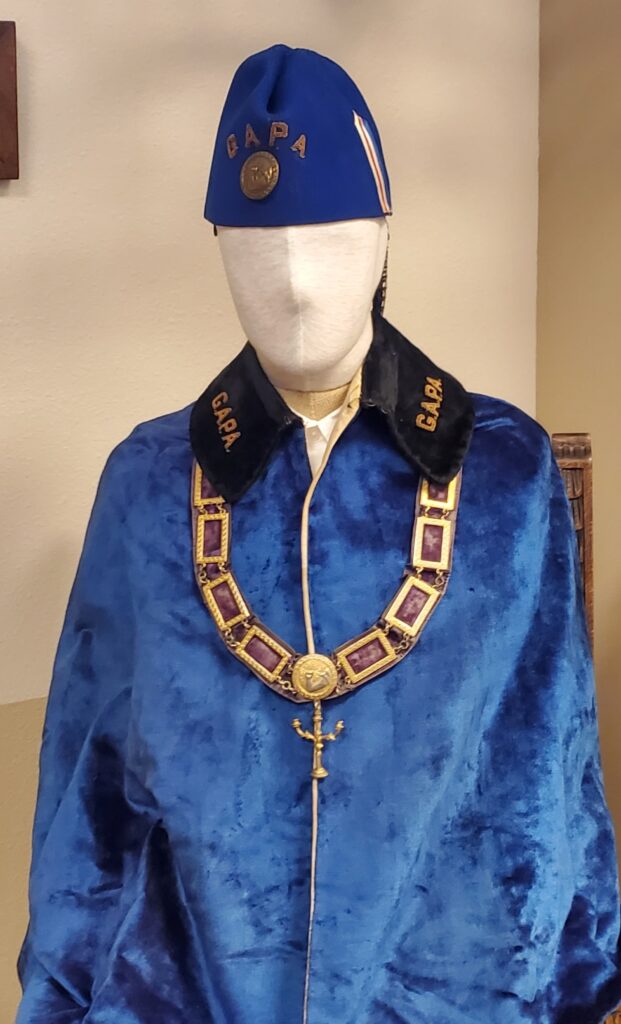by Noah Carandanis
Many of the early immigrants in the Greek American community of Portland found stability and camaraderie through fraternal organizations that promoted the ideals of Hellenism and social cohesion. Two of the most prominent organizations were the Greek American Progressive Association (GAPA) and the American Hellenic Educational Progressive Association (AHEPA). Although they shared common goals, each group expressed the ideals of Hellenism and Greek fraternity differently. By examining the various experiences of community members involving AHEPA and GAPA, the practical, social, and cultural impact of these associations comes to light.

Early Greek immigrants faced the daunting task of defining what it meant to be a Greek American citizen. Both AHEPA and GAPA sought to provide immigrants a space to celebrate their cultural heritage and navigate integration into American society. In response to the xenophobia rampant in American society, these groups supported its members through camaraderie and Greek American solidarity. Dr. Thomas Doulis, in his book Landmarks of Our Past, delved into the two organizations’ differing approaches to preserving Hellenism and providing for the Greek American community in Portland. “AHEPA was more assimilationist, while GAPA was more interested in keeping with the Greek ways. AHEPA used English in its meetings, GAPA used Greek. Soon class distinctions began to surface” (Doulis, pg. 43). GAPA was seemingly more hesitant about embracing the American way of life and leaving behind their Greek traditions, while AHEPA proved to promote assimilation to American ideals and culture.
Although they had their differences, both organizations provided practical support during times of struggle. One interviewee talks about how his father was sponsored through AHEPA to come to America for economic opportunity. In addition, “AHEPA manned a booth on S.W. Morrison to sell a million dollars’ worth of War Bonds during the Second World War … In the fall of 1944 the Daughters of Penelope sponsored a dinner to raise funds to ship a car-load of clothing to Greece … The Ismene Lodge of GAPA, too, expended much effort and money in the cause of the Greek War Relief and the selling of savings bonds” (Doulis, pg. 43). This dedication to helping individuals, as well as both the American and Greek war efforts in the Second World War illustrates the dedication which these immigrants had to both their country of origin and country of destination.

AHEPA has a presence within Greek communities around the world. Having a history which spans back to 1922, they originally were formed to “fight for civil rights and against discrimination, bigotry, and hatred felt at the hands of the Ku Klux Klan” (ahepa.org). Their mission has since expanded into preserving the ideals of Hellenism, an effort which has become international in its scope. AHEPA, in its mission to preserve Hellenism, exposed the local community to cultural gems like classical Greek theater. Andy P. was the president of AHEPA in Portland in 1985 and 1986, bringing along a resurgence in classical Greek theater. “I feel bad that the only thing Americans know about Greeks is baklava … They think that this is the only thing that we have contributed … [so] I said, how about starting and having a classic Greek theater every year”.

GAPA no longer has a presence within the Pacific Northwest, but it served as a social and cultural group for many Greeks here. It was established in 1923 with the goals to “assist the integration of Greek descendants into the American and Canadian way of life, perpetuate the Tradition of the Eastern Orthodox Christian Church, and to uphold and encourage use of the Greek language” (annunciationsac.org). Members involved in GAPA did not confine the group’s purpose to the Greeks in their community. It was active in the Portland Community at large, even having a drum and bugle corps in the 1940 Rose Parade. They likewise put on ancient Greek plays.
Whether you were a GAPAN or AHEPAN, both groups’ members experienced a vibrant social and cultural hub filled with theater, picnics, and fundraisers. Both groups provided early Greek immigrants a space to preserve and share their cultural traditions. Equally, these organizations served as beacons for both practical and social support. Although GAPA is currently inactive in the Pacific Northwest, the AHEPA family continues to foster Hellenism as it grows beyond the boundaries of Greek nationality. While we can draw some conclusions about how the different fraternal organizations oriented themselves towards Hellenism, the reality is that no matter what membership community members held, they all expressed their devotion to Hellenism in a distinctly Greek American fashion.
About the project
HACCM collects the oral histories of community members who can speak to the Hellenic-American experience of the Pacific Northwest. Our oral history committee is actively collecting new interviews, and if you are interested in participating, please contact HACCM. Funding for oral history research for this project was provided by the Oregon Cultural Trust.
Learn more
HACCM has an extensive collection of oral histories. To listen to these oral histories or schedule one of your own, please visit HACCM today!
